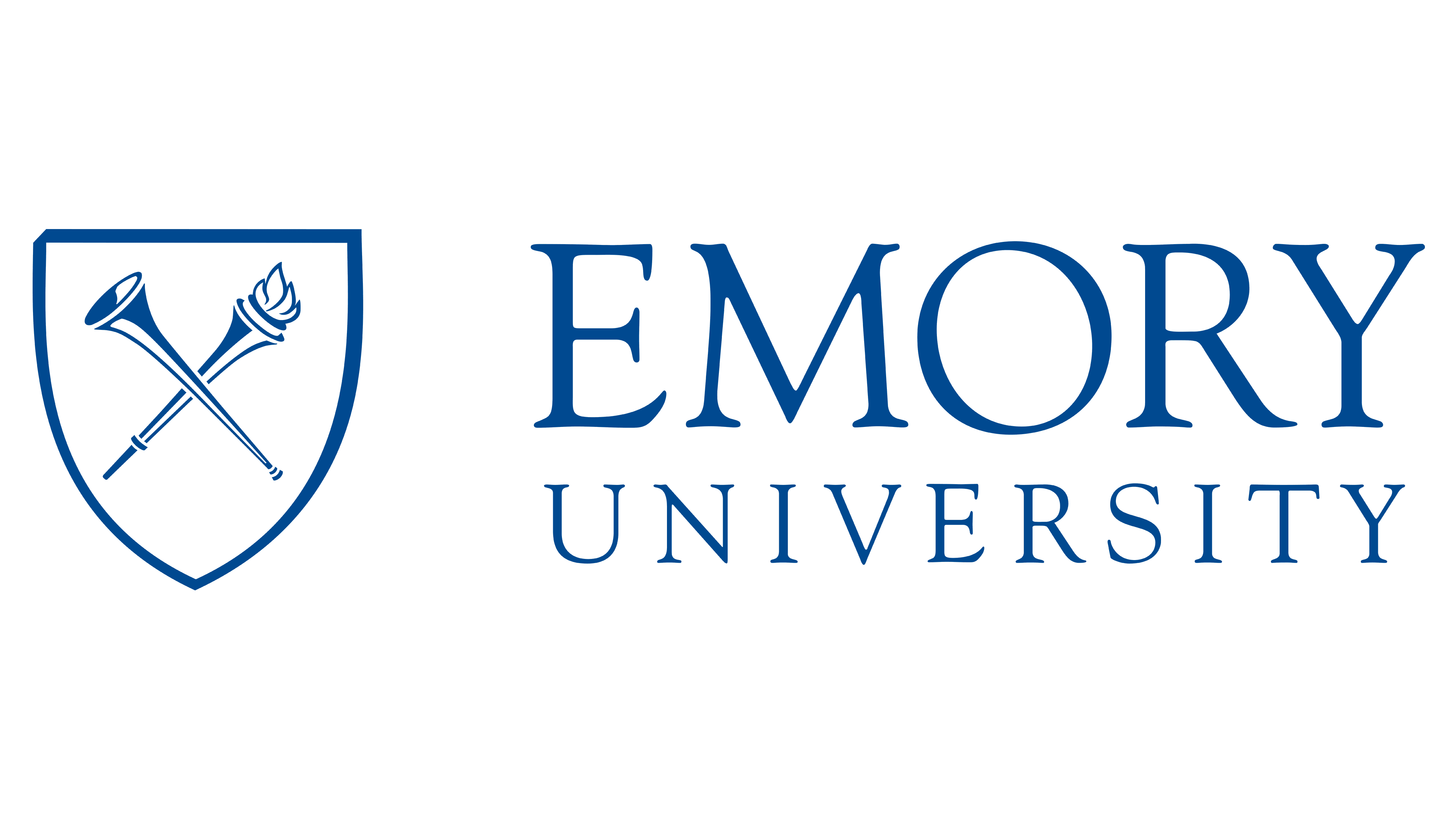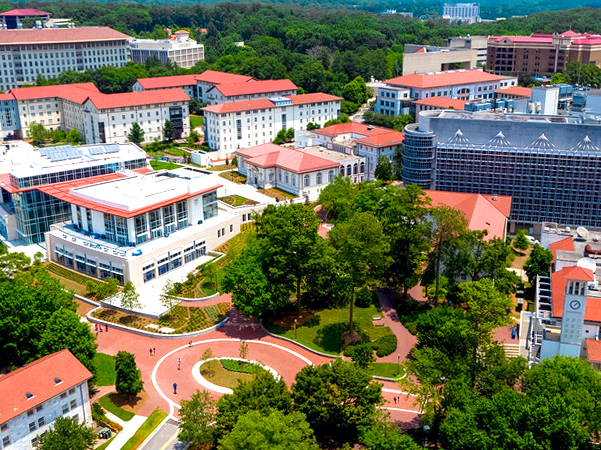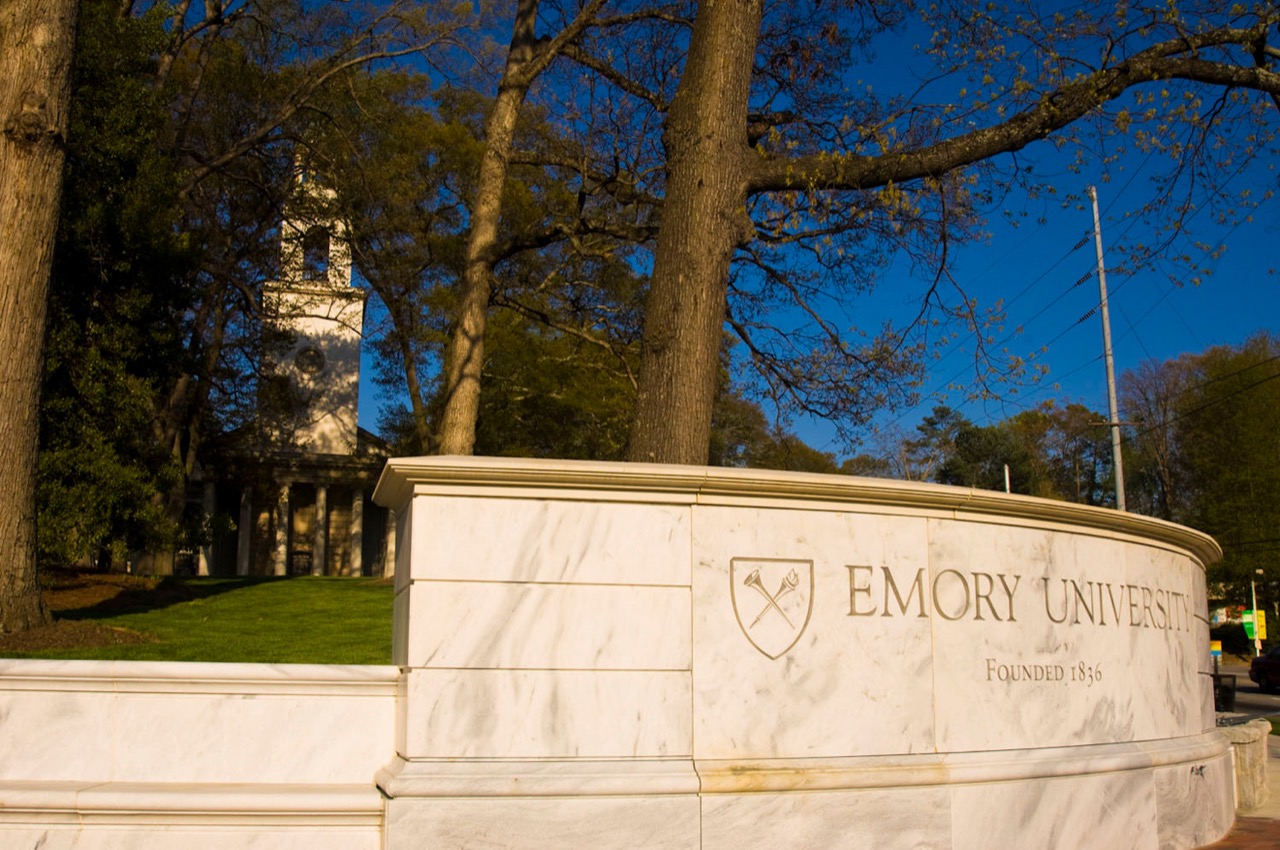Emory Orthopedic Surgery Residents - Life And Learning
Considering a demanding medical career path, perhaps one that leads to becoming an orthopedic surgery resident? The environment where one trains can shape so much, and Emory University, it seems, offers a rather distinct backdrop. Prospective residents, or perhaps those just curious about what shapes medical professionals at this institution, might find it interesting to consider the general atmosphere and academic standing that, in a way, could influence such a rigorous program.
Emory, you know, has a long-standing academic presence, often recognized for its strong programs across many fields. This general academic strength, which is that of a university with nearly all its departments typically placing quite well in various rankings, helps paint a picture of the kind of intellectual setting a future orthopedic surgery resident might find themselves within. It’s a place, apparently, where academic rigor is pretty much the norm, and that can certainly matter for someone undertaking such specialized training.
Moreover, the university’s location, situated within the Atlanta metropolitan area, offers a lot in terms of accessibility and, well, a generally pleasant climate. This practical aspect, like being able to get into the city without too much trouble, could be a small but significant factor for individuals who are, in some respects, dedicating their lives to intense study and practice. It’s just a little something to think about beyond the books and the operating room, really.
- As The World Caves In Song Meaning
- Aishah Sofey Erome
- Mysterious Skin Bathroom
- Imskirby The Dog Incident
- Daisys Destruction
Table of Contents
- What Kind of Academic Setting Supports Emory Orthopedic Surgery Residents?
- The Broader University Picture for Emory Orthopedic Surgery Residents
- Exploring Campus Life and Reputation for Emory Orthopedic Surgery Residents
- The Atlanta Connection for Emory Orthopedic Surgery Residents
- Graduate School Strengths and Emory Orthopedic Surgery Residents
- Emory's Historical Professional Standing and its Meaning for Orthopedic Surgery Residents
- The Oxford Campus - A Different Academic Path for Future Emory Orthopedic Surgery Residents?
- Considering the Overall Experience for Emory Orthopedic Surgery Residents
What Kind of Academic Setting Supports Emory Orthopedic Surgery Residents?
Emory University, it seems, has a reputation for being a very strong liberal arts institution, which is a bit interesting when you consider something as specialized as orthopedic surgery. Apparently, nearly every academic area at Emory typically finds itself among the top thirty nationally, which is quite an achievement, really. This suggests a broad foundation of excellence across the board, which, in a way, could mean that the general academic environment is one that fosters high achievement. For someone aiming to become an orthopedic surgery resident, being in a place where scholarly pursuits are held in such high regard might be quite beneficial. It’s about the overall quality of thought and teaching that permeates the institution, you know, rather than just one specific program.
The fact that even areas like engineering, which are sometimes seen as slightly less strong, still benefit from a partnership with Georgia Tech, also speaks to a willingness to collaborate and seek out strengths. This kind of collaborative spirit, you might say, could indirectly shape the learning experience for Emory orthopedic surgery residents, as it points to an institution that values practical application and inter-institutional cooperation. It suggests an environment where resources are shared and where there’s a drive to be at the forefront, even if it means working with others. That, honestly, sounds like a pretty sensible approach for a university.
The Broader University Picture for Emory Orthopedic Surgery Residents
When thinking about where someone might pursue a demanding residency, the overall university structure and its offerings can matter a lot. Emory, for example, is noted for having two really good graduate schools. This presence of strong graduate-level education, generally speaking, indicates a focus on advanced study and research, which is obviously important for medical training. It suggests that the university is set up to support high-level academic work, which is something an Emory orthopedic surgery resident would absolutely be engaged in. The very presence of these schools means there’s a culture of advanced learning already built into the fabric of the place, which is pretty cool.
- Bonnie Blue 1000 People Video
- 69069 Text
- Morgan Wallen Setlist Miami
- Benny Blanco Net Worth
- Sophie Rain Spider Man Video
Also, the mention of discussions for future applicants, like those for the Emory class of 2029, shows that there's an active community of people looking to join the university at various levels. This kind of ongoing engagement and the opportunity to connect with fellow applicants, as mentioned in the text, points to a vibrant, welcoming atmosphere for new students. For someone considering a medical residency, knowing that there’s a system in place for connecting with peers and asking questions, basically, could make the transition into such a demanding program a bit smoother. It’s about feeling like you’re part of a group from the start, which is a nice thing.
Exploring Campus Life and Reputation for Emory Orthopedic Surgery Residents
It’s interesting to hear about some of the concerns people have raised regarding campus life at Emory, like the idea that there might not be much school spirit or social activity, or the rather strong quote about "snobby ivy rejects." These are, in a way, common worries for any large university, and it’s important to consider how such perceptions might impact the daily life of someone like an Emory orthopedic surgery resident. While a residency is incredibly demanding and might not leave much time for traditional "school spirit" activities, the overall social climate can still play a role in one's well-being, you know. A supportive or a less engaging social scene could make a difference in how a resident feels outside of their clinical duties.
However, it’s also worth remembering that these are often just perceptions or anecdotal experiences. What one person finds lacking, another might see as a focused, academically driven environment that suits their goals. For someone committed to the intense demands of an orthopedic surgery residency, a less overtly "party" atmosphere might even be seen as a benefit, allowing for more concentration on studies and patient care. It really just depends on what someone is looking for, and how they define a good social life, basically. The text doesn’t give us a definitive answer, just some things people have said, which is, well, just what it is.
The Atlanta Connection for Emory Orthopedic Surgery Residents
The location of Emory within the Atlanta metropolitan area is, to be honest, a pretty big plus. The text mentions that it’s about a 20-30 minute drive into the city without traffic, and that the climate is good. For someone in a demanding program like an orthopedic surgery residency, having easy access to a major city can offer a lot in terms of amenities, cultural experiences, and just general life outside of the hospital. It means there are places to go, things to do, and a broader community to be a part of when one does get a moment of free time. That, you know, can be really important for maintaining some balance in a very busy schedule.
A good climate, too, is often something people appreciate. Being able to enjoy the outdoors more often, or simply not having to deal with extreme weather, can contribute to a better quality of life. For Emory orthopedic surgery residents, who will spend countless hours indoors, having a pleasant outdoor environment to step into, even for a short break, could be a small but significant advantage. It’s just about having a comfortable place to live and work, really, which makes a lot of sense.
Graduate School Strengths and Emory Orthopedic Surgery Residents
The fact that Emory has "two terrific graduate schools" is a pretty strong indicator of its commitment to advanced education and research. This isn't just about general academics; it speaks to the resources and intellectual capital available at the university for specialized fields. For someone pursuing an orthopedic surgery residency, being part of a university with such strong graduate programs means access to a wider range of academic support, research opportunities, and possibly even interdisciplinary collaboration. It’s that kind of rich academic ecosystem that can really support highly specialized training. You might say, it creates a more fertile ground for learning and discovery.
This environment, with its focus on advanced degrees, typically attracts a particular kind of student – one who is serious about their field and dedicated to pushing the boundaries of knowledge. This means that Emory orthopedic surgery residents would likely be surrounded by peers and faculty who are equally committed to their respective areas, fostering a high-achieving and intellectually stimulating atmosphere. It's about being in a place where everyone, more or less, is striving for excellence in their chosen profession, which can be pretty motivating, honestly.
Emory's Historical Professional Standing and its Meaning for Orthopedic Surgery Residents
The text mentions that Emory has traditionally had "excellent elite MBA placement," even being ranked as a top 10 feeder school some years ago. While this specifically refers to business, it speaks to a broader institutional capability to prepare students for highly competitive professional fields. This historical success in placing graduates into demanding careers could suggest that the university has effective mechanisms for professional development and career guidance. For Emory orthopedic surgery residents, this might translate into strong mentorship, access to professional networks, and a clear path toward post-residency opportunities. It’s about the university's track record of preparing people for successful careers, which is a really good sign.
Even if the specifics of MBA placement don't directly apply to medical residencies, the underlying institutional strengths that lead to such outcomes – like rigorous training, strong faculty connections, and a focus on practical application – are very likely present across other professional programs. This means that a resident could potentially benefit from a university culture that is geared towards professional success and making sure its graduates are well-prepared for the next steps in their careers. It’s, in a way, a testament to the university’s commitment to its students’ futures, which is, you know, pretty important.
The Oxford Campus - A Different Academic Path for Future Emory Orthopedic Surgery Residents?
There's a mention of the Oxford campus and the option for applicants to consider it, which raises questions about its academic differences. This suggests that Emory isn't just one monolithic entity but offers different pathways or experiences, even within its undergraduate admissions. While the Oxford campus is primarily for undergraduate studies, the fact that there's a distinct academic experience there might hint at a university that values varied approaches to education. For someone considering a future at Emory, even as an orthopedic surgery resident, understanding these different facets of the university could provide a fuller picture of its educational philosophy. It’s just another piece of the puzzle, really, in understanding the broader institution.
The question about whether there's a "different academic" experience at Oxford suggests that the university might cater to different learning styles or preferences at its foundational level. This flexibility, if it extends to graduate programs or the overall university culture, could mean that Emory is adaptable and offers diverse learning environments. For a demanding field like orthopedic surgery, having a university that understands and supports different ways of learning, or different academic focuses, could be a benefit. It points to a university that thinks about how people learn, basically, which is a good thing for any student.
Considering the Overall Experience for Emory Orthopedic Surgery Residents
Putting all these pieces together, the picture of Emory University for prospective orthopedic surgery residents is one of a place with significant academic strength, a good location, and a reputation for preparing professionals. While some anecdotal concerns about social life exist, the core academic mission and the presence of strong graduate schools suggest an environment very conducive to serious study and demanding training. The collaboration with Georgia Tech, and the historical success in professional placement, all point to a university that is, in some respects, well-equipped to support high-level medical education. It’s about the whole package, you know, not just one small part.
Ultimately, the experience of an Emory orthopedic surgery resident would be shaped by these broader institutional characteristics. The general academic rigor, the urban setting with a good climate, and the university's established pathways for professional success would all contribute to the overall learning and living environment. It seems like a place that, honestly, provides a solid foundation for those looking to pursue a very challenging and rewarding medical career. It’s a university that, basically, has a lot going for it, which is something to consider.
- 2 Babies One Fox
- Where Is Phoebe Cates Now A Look Into Her Life And Career
- Haircuts For Straight Hair Men
- Paleseafoam Leaks Of
- Fiona Gallagher Shameless

Emory University Logo: History, Meaning, And Brand Identity

Pathways through Emory | Blog: Inside Emory Undergraduate Admission

Atlanta Campus Backgrounds | Emory University | Atlanta GA